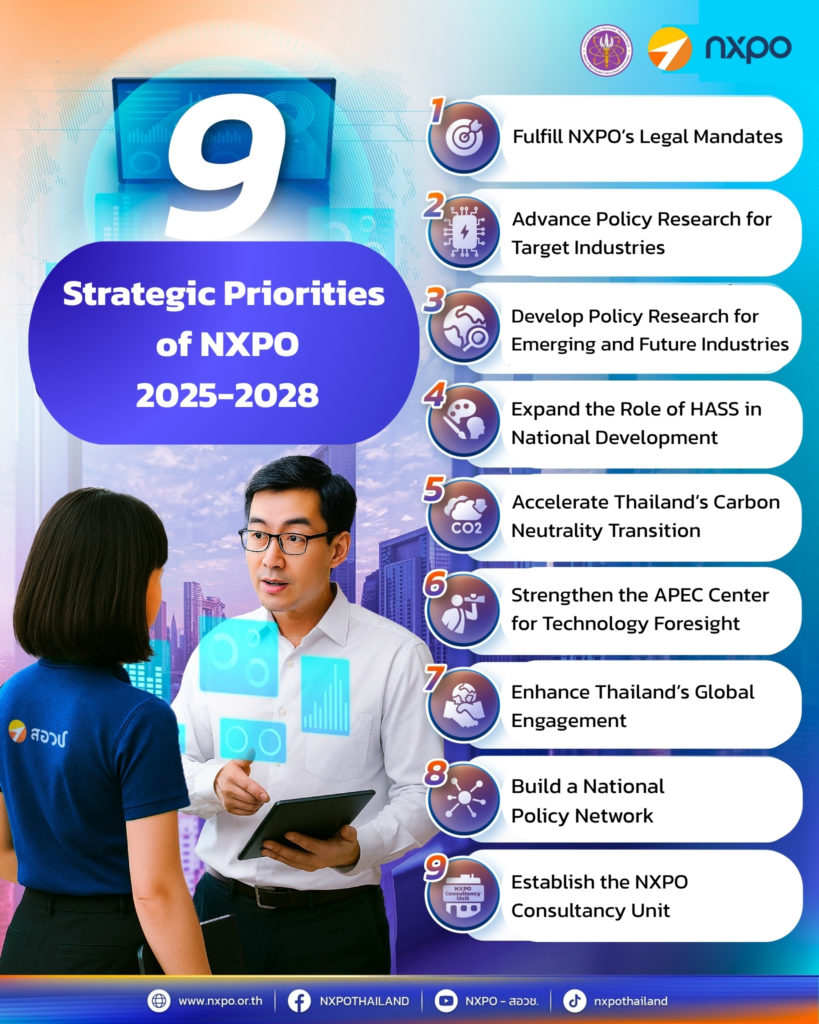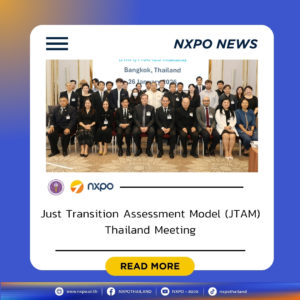As Thailand’s national think tank for higher education, science, research, and innovation, NXPO has outlined nine strategic priorities to guide its operations in addressing the country’s future challenges. These priorities are as follows:

- Execute the responsibilities stipulated in Section 22 of the National Higher Education, Science, Research and Innovation Policy Council Act B.E. 2562 (2019) and Section 14 of the Higher Education, Science, Research and Innovation Promotion Act B.E. 2562 (2019). This includes serving as the Secretariat to the Policy Council, formulating policy recommendations, expediting legislative processes, overseeing budget frameworks, supporting monitoring and evaluation, coordinating with domestic and international stakeholders, tracking agency performance, and advancing integrated data systems.
- Prioritize policy research to support the development of strategic plans for Thailand’s target and high-potential industries. Focus areas include electric vehicles (EVs), semiconductors and advanced electronics, future food, medical tourism, high-value aquaculture, and insect protein, alongside innovation ecosystem frameworks for emerging sectors.
- Support policy research to strengthen higher education, science, research, and innovation policies and strategies in response to rapid technological transformation. This includes national strategic plans for AI adoption, and roadmaps for emerging technologies such as sustainable aviation fuel (SAF), green hydrogen, fusion energy, carbon capture, utilization and storage (CCUS), quantum technology, and synthetic biology.
- Promote policy research that integrates humanities, arts, and social sciences (HASS) into national development, ensuring alignment with the National Strategy.
- Facilitate the transfer of climate technologies and funding from international sources to support Thailand’s transition to net-zero greenhouse gas emissions. This effort will be driven through NXPO’s role as Thailand’s National Designated Entity (NDE) for climate technology under the United Nations Framework Convention on Climate Change (UNFCCC).
- Expand the role and capacity of the APEC Center for Technology Foresight (APEC CTF) which is hosted by NXPO.
- Foster international cooperation in higher education, science, research, and innovation. NXPO will strengthen partnerships with existing organizations such as the OECD, ASEAN, and the United Nations while forging new collaborations to support national priorities.
- Develop a nationwide network for higher education, science, research, and innovation policy stakeholders through targeted activities.
- Establish the NXPO Consultancy Unit to enhance NXPO’s capacity as Thailand’s leading policy advisory body for higher education, science, research, and innovation.
Through these nine strategic priorities, NXPO reaffirms its mission to “design Thailand’s future” by shaping visionary, future-oriented policies that position the nation for long-term, sustainable development.







